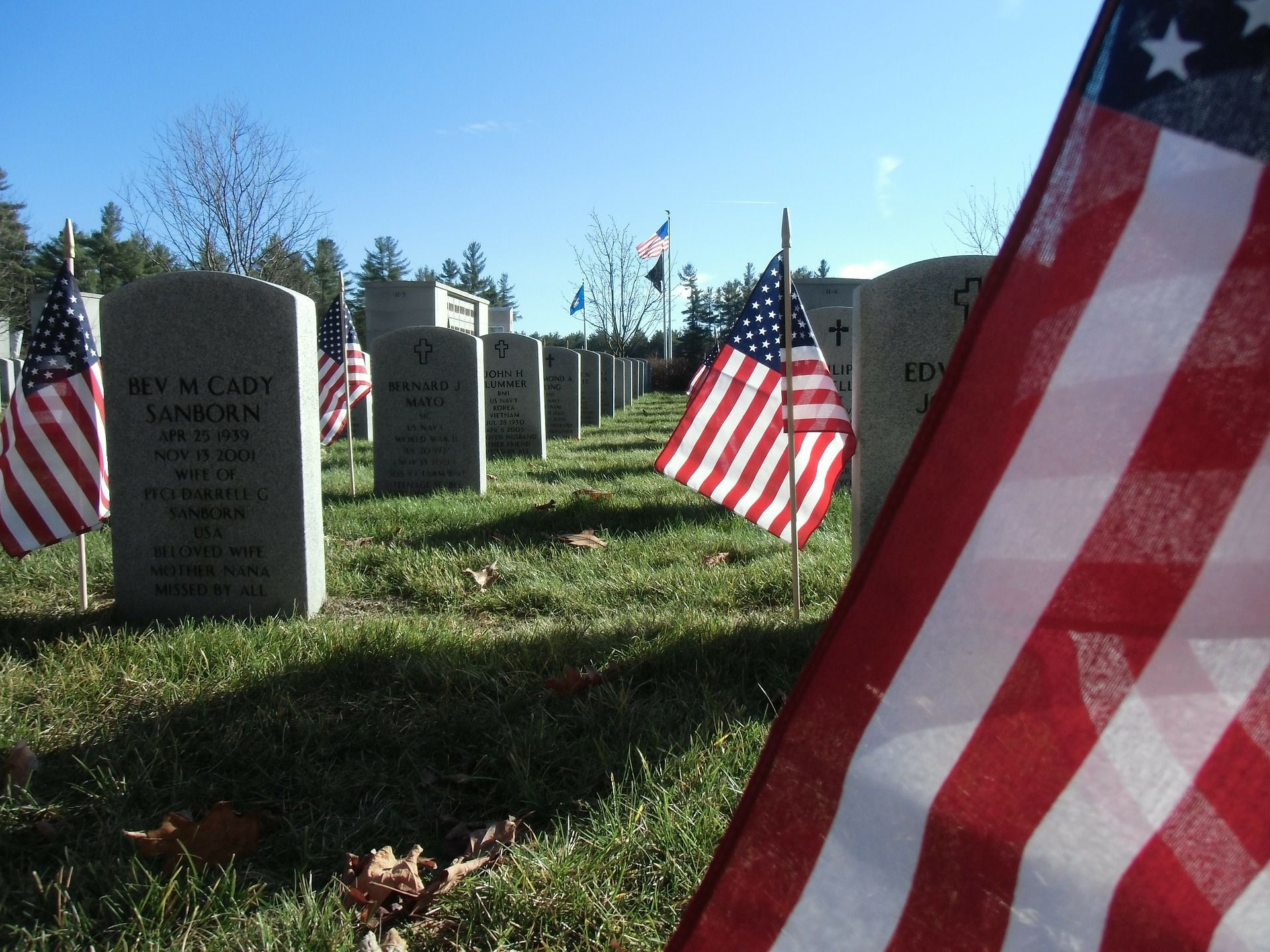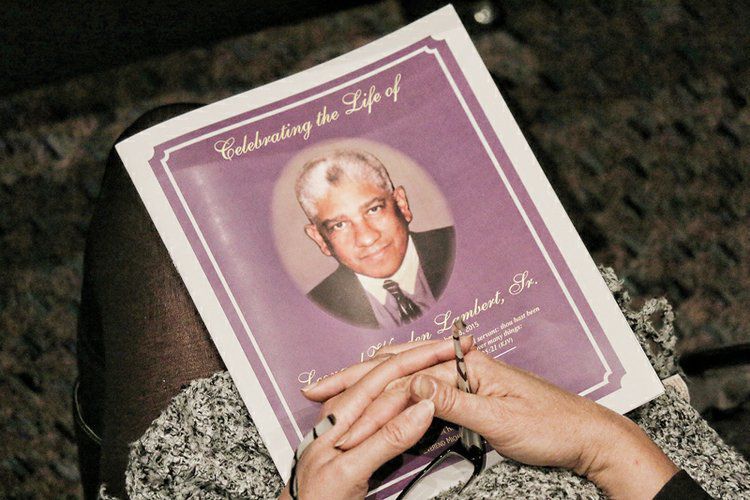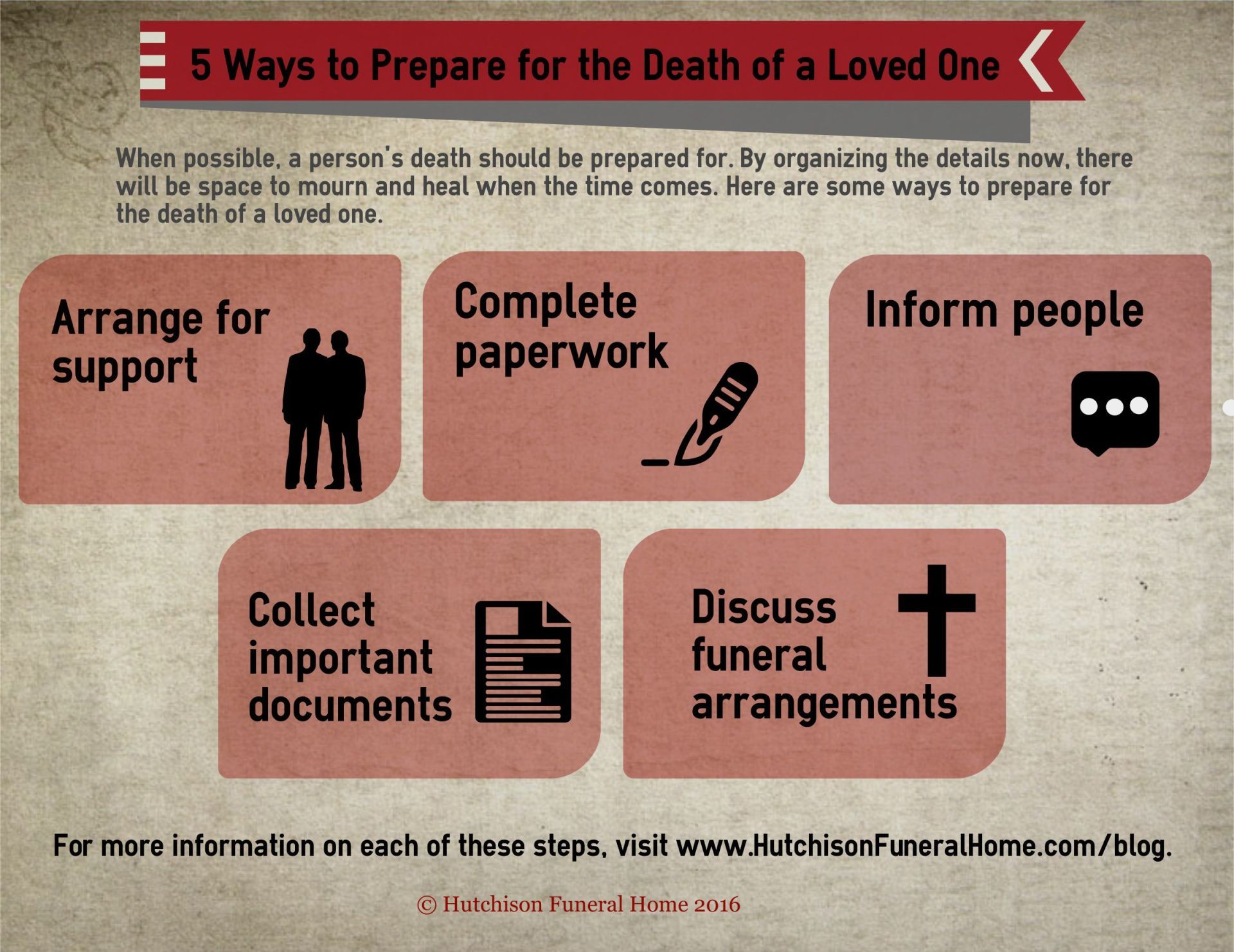5 Ways To Prepare For Death Of A Loved One
All of us will cope with the death of someone we love in our lifetime. It is a natural part of life. This loss can be a confusing time and some advanced preparation can allow you to properly mourn without dealing with stressful decisions. Often, we are able to foresee this loss approaching in the case of an aging or ill family member. In these cases, we should take advantage of the extra time we have to prepare for the inevitable. This time should be used to organize the details so that we have space to mourn and heal when the time comes. Here are some ways to prepare for the death of a loved one.
1. Arrange for support
Encourage friends and family members to come visit your loved one. Make them aware that you will be seeking support and companionship in the coming days. Try to be clear about your needs with the people you trust. You may want to arrange for a friend to deal with your mail and screen your phone calls upon your loved one’s passing. If you are part of a religious community, your congregation and religious leader can also be a wonderful source of support.
Funeral homes can also provide support and direction in this trying time. Funeral directors are trained to help people cope in these situations and they can provide a wealth of comfort and useful information.
Additionally, inform your boss and place of employment about what you are facing. The sooner they know that you need time off or coverage at your job, the more effectively they can help accommodate your needs.
2. Paperwork
There might be a lot of paperwork to do upon the death of a loved one. This can include submitting an obituary to the newspaper, informing the government about the death, or closing financial accounts. Contact the necessary parties to see how you can streamline these processes. It is possible you’ll be able to complete some of these tasks ahead of time, which will make things easier. After your loved one is gone, you will want space to grieve. Paperwork will not be high on your list of preferred activities.
3. Inform people
It’s important that your loved one’s social circle knows that they are approaching the end. People will want an opportunity to make final memories.
With your loved one’s permission, contact the people in their life. Invite them to come visit. No one likes to be surprised by a funeral announcement. These phone calls are better made ahead of time.
4. Collect important documents
There are a number of documents that you need to have access to after someone dies. Some of these may be difficult to find and you might need to ask the person where they keep these items, so this collection is best done before their passing. This could include:
- IDs: driver’s license, birth certificate, social security card
- Tax returns
- Property deeds
- Safety deposit box information and keys
- Titles for vehicles
- Business paperwork
- Marriage license or divorce papers
- Investment documents such as stocks and bonds
These documents will help streamline the process of collecting on insurance policies or settling accounts after your loved one has passed.
5. Discuss and arrange funeral plans
Funerals require some decision-making and money. Many funeral homes require payment before the actual funeral service. This means you will need to consider how to handle the cost of the funeral for your loved one, if that cost has not been pre-paid or pre-arranged financially with the funeral home. One option is simply to save up the money. Alternatively, you can place the money in a bank account you have on file with the funeral home as part of a pre-arrangement. You can also use life insurance to pay for the final expenses as part of an assignment agreement.
It’s better to make these arrangements with both the funeral home and insurance provider before death happens. This way, you will know what documentation and information is needed after death to pay for the funeral service.
Find out if any funeral details have already been arranged. Often, a person will have already purchased a cemetery plot or expressed their desire for cremation. For more information on how to talk to an aging parent or loved one about death, see this article. Here are some questions to ask about the funeral arrangements:
- Does your love one prefer cremation or burial?
- Is there a place they would like to be interned or have their ashes spread?
- Would they prefer a wake or memorial instead of, or in addition to, a funeral?
- Do they have requests for content to be included in their obituary?
- Is there a song they want played at their funeral or memorial service?
- Is there a color or special outfit they’d like to be buried in?
Decide as many of these details as possible with the help of your loved one before their passing.
Loss is difficult. The first step of learning how to prepare for the death of a loved one is realizing that preparation is necessary. By arranging the details ahead of time, we can allow ourselves to grieve and find peace after their passing. If you are facing the death of someone you care about, use these tips to prepare efficiently.




